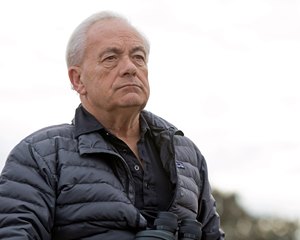National HBPA, THA Call for Fair Process for Horsemen


In the wake of The Stronach Group's ban on trainer Jerry Hollendorfer from TSG-owned tracks, horsemen's organizations are becoming increasingly concerned over ways to defend themselves against damaging allegations.
The National Horsemen's Benevolent Protective Association and Thoroughbred Horsemen's Association issued a joint statement July 4 saying the organizations plan to work with racetrack operators on agreements to ensure horsemen are afforded due process. The statement cites TSG's banning of Hollendorfer as a reason of concern, saying it "clearly sidestepped" his rights to a fair process.
TSG announced June 22 the Hall of Famer was ruled off all its racetracks, including his bases of Santa Anita Park and Golden Gate Fields in California. Hollendorfer also said June 29 that the New York Racing Association told him horses entered under his name would not be allowed to race at NYRA tracks, a reversal of a June 23 statement that said the trainer would be permitted to stable and race in New York. NYRA representatives declined to comment about the reversal.
Hollendorfer's horses in New York have been transferred to assistant Don Chatlos Jr. and will be permitted to run under Chatlos' name there.
"Due process is a fundamental and accepted constitutional right in our country. In a government-sanctioned and -regulated industry, it is required," the joint statement from the HBPA and THA read in part. "Every person in our industry who holds a license to participate is given a right to due process when their livelihood is threatened. We are an industry that operates according to rules and regulations, standards are clear, violations have consequences, and we are transparent.
"The situation which occurred recently at Santa Anita from The Stronach Group regarding Jerry Hollendorfer has clearly sidestepped those rights and exemplifies our concerns. By this action, every licensee in racing is on notice of potential arbitrary career-ending actions by racetracks without rules, standards, the right to due process, fundamental fairness, and accountability."
TSG's decision came during intense scrutiny from national media and animal welfare activists. During the recent Santa Anita Park meet Dec. 26-June 23, 30 horses died from injuries sustained during racing or training. Four of them were trained by Hollendorfer.
National HBPA CEO Eric Hamelback said TSG's actions could negatively affect horsemen nationwide and noted a lack of transparency in its decision.
"We're not standing on anybody's side other than fairness," Hamelback told BloodHorse. "The precedent that could be taken from this action done by The Stronach Group if it were to go into other states, we feel could be detrimental to horsemen, period."
THA chairman and CEO Alan Foreman also mentioned legislation as a possible option when reached by BloodHorse for comment. Both he and Hamelback pointed to a statutory protection in West Virginia that gives the state's racing commission the power to uphold or overrule a racetrack's barring of a trainer at the end of a hearing.
"We're not arguing about whether the tracks have a right to exclude somebody," said Foreman, noting the horsemen's organizations do not wish to support bad actors in the industry. "It's what could be the arbitrariness of it and the fact that it's career-ending and could cost someone their livelihood. And that's what seems to have the horsemen's community upset."
Hamelback said similar legislation recently took effect in Arizona after a racetrack owner was ruling trainers off without due process.
"You're allotted due process in the commission, which, again, as our governing bodies, have the opportunity to weigh in and uphold if a track's decision is made," Hamelback said. "But there needs to be proof, obviously a fair hearing, and (horsemen are) subsequently given the reason why (they're) asked to leave."
"As horsemen, we know that our primary responsibility is the health, welfare, and safety of the horse; the integrity of our sport; and the fairness of competition," the statement went on. "There is no place in our sport for individuals who cannot accept this commitment. In this regard, racetracks, regulators, and horsemen must constantly work together to find solutions to the challenges we face, with honest discussion and transparent decision-making. When decisions are made behind closed doors and without open communication, we create conflict and turmoil at a time when we need to be collectively focused on the betterment of horse racing.
"The HBPA and THA are in lockstep on this issue. We do not intend to stand idly by and let reputations be destroyed and careers ruined. There must be a fair process that gives our horsemen a right to confront allegations of wrongdoing. In those states where horsemen are not accorded due process by racetracks, we will seek agreements to protect their rights or statutory protections. Our intent is to ensure a fair process. The time we take to do what is right and fair will be an invaluable investment in our industry."
Speaking to BloodHorse, Foreman clarified, "We're not suggesting that we support bad actors, and we're not suggesting that bad actors shouldn't be rooted out of the business. What we're saying is that under any circumstance—whether it's a Hall of Fame trainer or it's someone with a small outfit—that they are afforded some opportunity to be confronted with whatever the allegations are against them and to defend against it before any action is taken against them."
